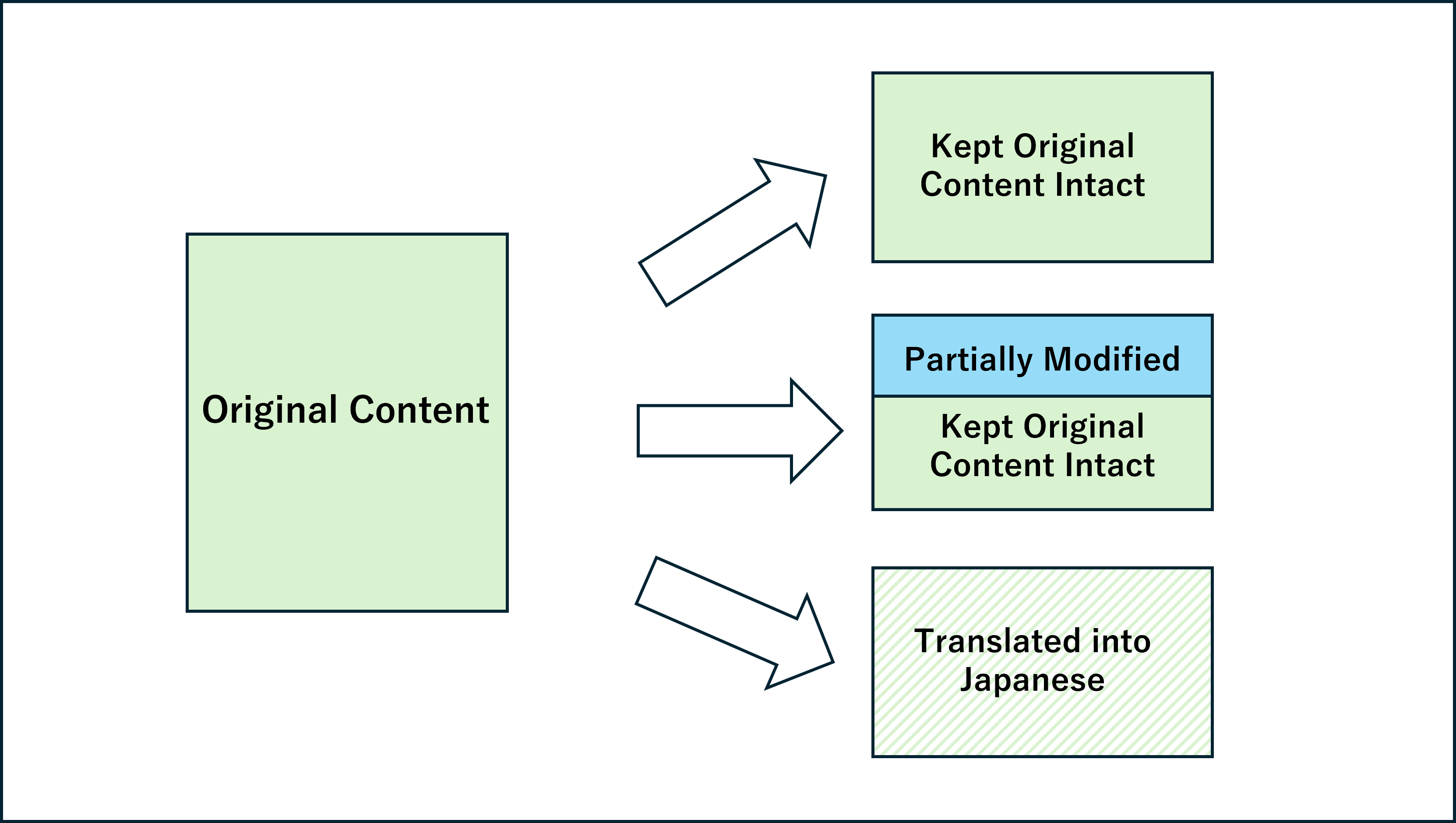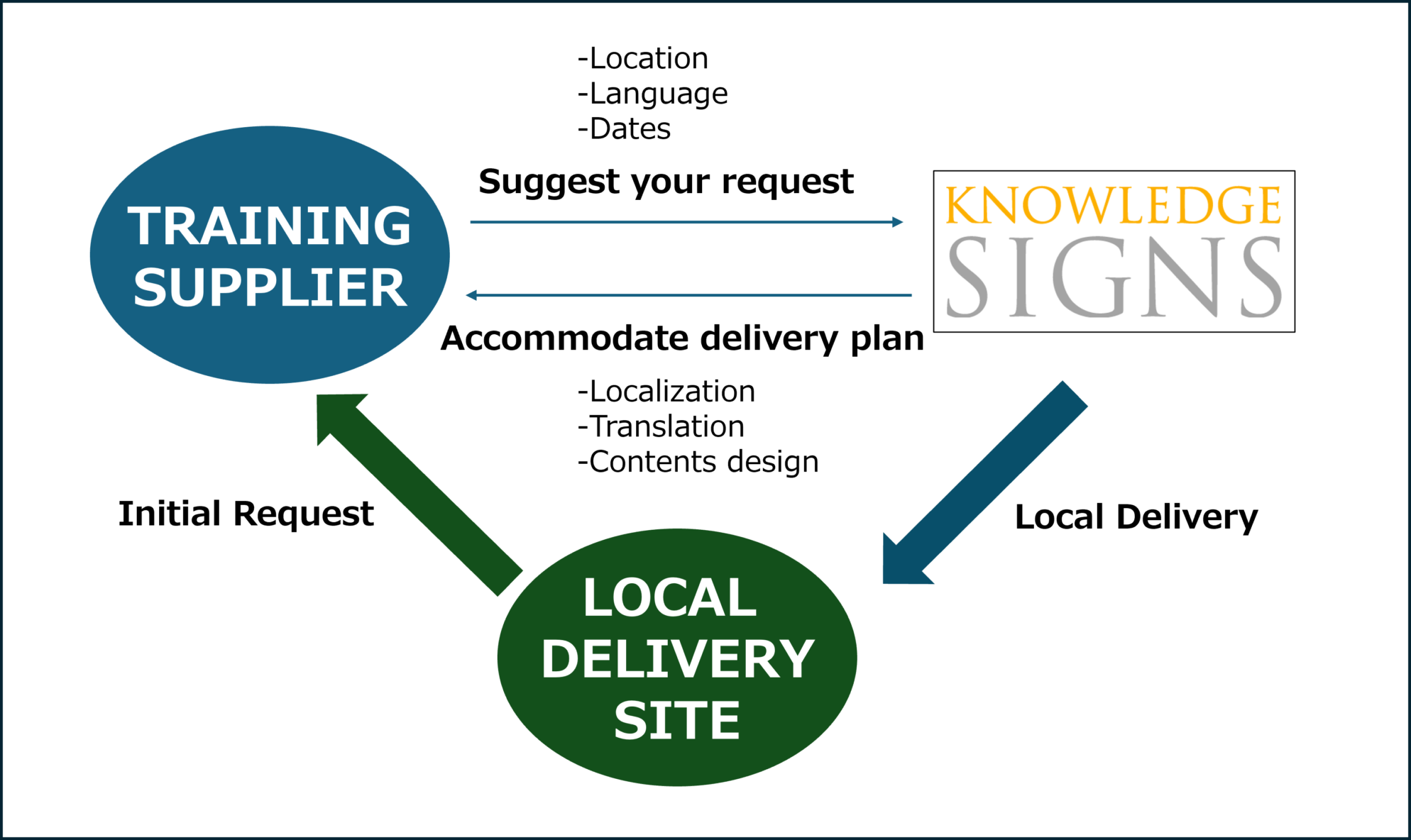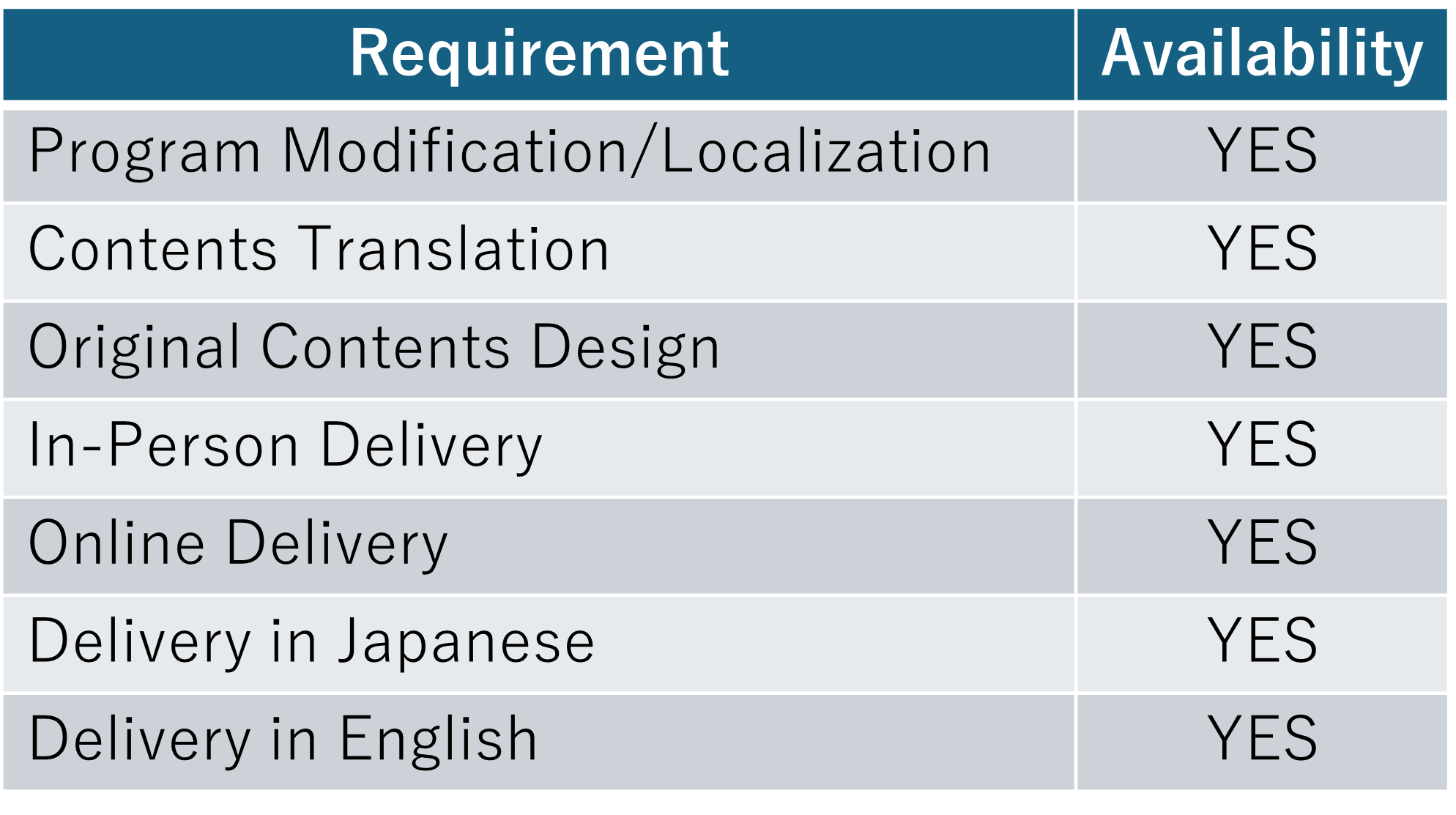This post is also written in the following language:
![]() 日本語 (Japanese)
日本語 (Japanese)
We accommodate your delivery plan tailored to the local situation.
If you look for someone who delivers your training in local language, you found out the best solution now.
Knowledge Signs has been involved in a lot of global roll out trainings and able to assign well qualified English/Japanese bilingual trainers, facilitators.
There are many opportunities to roll out global training contents in multi-national companies. And the challenge in global roll out training is to ensure the same quality in any local deliveries.
In Japan, as most of trainees are Japanese speakers, it’s very difficult to deliver the training in English. Training administrator needs to hire English/Japanese bilingual trainers, facilitators.
And also, In most of cases of local delivery of global roll out training in Japan, it requires contents customizing or editing tailored to the local situations.
Covered Areas of local deliveries
| -Sales skills straining -Leadership Development -Change management training -Facilitation skills training -Presentation skills training -Listening skills training -Leadership for cross-cultural groups |
Various ways to localize and translate
Firstly, the language for delivery is decided to be following ways.
| ‣The training program is basically conducted in Japanese. ‣The training program is basically conducted in Japanese. |
The local delivery that Knowledge Signs undertakes is basically the former one. Most of the time it is conducted in Japanese, but sometimes it is conducted in English. Even if the program is conducted in Japanese, in the case that includes English speaking participants, the program would be conducted in Japanese and English mixed .
As for training materials, There are two ways.
| ‣Training materials is used in original English description. ‣Training materials is translated into Japanese-language. |
The former is more common, that being said, as the instructor speaks Japanese, it’s virtually oral translation. If it is difficult for Japanese participants to read it, we translate the materials into Japanese.
Withe regards to the program content, there are following 2 ways.
| ‣We deliver the exact same program as the original program. ‣We modify the original program tailored to Japanese business environment to some extent. |
Mostly we are offered to use the universal program as intact, but as a result, we often do so called “Localization”, modify the program in some part to adjust to Japanese business culture or local industry situation.
Since the differences in business practices between Japan and other countries are so great, the value of the original program may be compromised if the original program is left as it is, or the important message is not conveyed properly.
Therefore, to fulfill our responsibility to ensure the quality of local delivery, we often modify the content to suit the Japanese business climate, while satisfying both the original content provider and the local site.
You can ask us to deliver your content without any modification. If you need to translate the content into Japanese or localize the content tailored to the local situation, it’s available as well.
Based on a lot of experiences, we can accommodate your delivery plan tailored to the local situation.

Localization requires affluent knowledge about local market trait and business culture, and higher capability to design total process of the training program.
The most common localization in this case is the modification of cases. If a case study is unfamiliar to the Japanese market, it may be replaced with a similar case study actually seen in Japan.
In leadership development, as the key methods and tools are common across the world, mostly it doesn’t need to adjust to local situation. However, when it comes to sales skills training, differences in business culture have a significant impact on the content, so the theories and methodologies introduced in these courses are likely to be modified to fit to Japanese business culture and practices.
In Local delivery of Global Rollout Training, we need to satisfy HQ and local site as well.
This localization process is very difficult, and requires knowledge of the industry and a variety of skills and experience, as it must be modified for the participants to accept, while maintaining the key substance and value of the original program.
Localization itself is a major facilitation challenge.
Knowledge Signs proposes the most appropriate localization method based on deep understanding of objectives and intentions the original program, as well as the local situation.
Some of Past deliveries
| HPE(Hewlett Packard Enterprise) Bytedance Mitsubishi Fuso Truck and Bus Corporation Husqvarna AirAsia Sportify QVC Japan Air Liquide Japan Elanco Japan |
Your reliable Facilitator
Hideyuki Yoshioka CEO of Knowledge Signs Inc.

- Born in Kobe City, 1963.Graduated from the department of business administration of Kobe University
in 1986. Firs career was built in Recruit Co. ltd., well known as “the most ambitious company bringing out many entrepreneurs in Japan”. Founded Knowledge Signs Co. Ltd. in 2003.
Hideyuki has been actively involved in professional facilitation for over 16 years specializing in organizational development, change management, Mid-term plan formulation, IT system global roll out project, HR system developing and SDGs adaptation management. Hideyuki is well experienced for the cross-cultural group facilitation.
-IAF Certified Professional facilitator (CPF)
-SPOT on Facilitation certified trainer
-Management 3.0 Licensed FacilitatorLanguage: Japanese, English
Available: Japan, Singapore, other areas in Asia, North America, Eu
Learn more abut how we localize and deliver the global roll-out training







